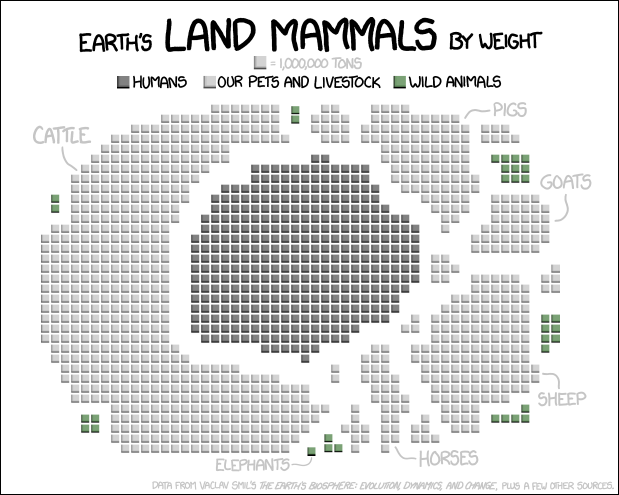- Improvement in wild endangered Persian sturgeon, Acipenser persicus (Borodin, 1897) semen cryopreservation by 2-hydroxypropyl-beta-cyclodextrin (HβCD). Hey, stop sniggering, it’s good to know there’s an ex situ option.
- Biofortification of wheat grain with iron and zinc: integrating novel genomic resources and knowledge from model crops. Your jetpack is here, sir.
- Genetic Diversity and Ecological Niche Modelling of Wild Barley: Refugia, Large-Scale Post-LGM Range Expansion and Limited Mid-Future Climate Threats? As ever, the answer is yes.
- Economic and physical determinants of the global distributions of crop pests and pathogens. More crops, more pests, but not as many as there would be if more money were available for observation.
- Wild potato species (Solanum section Petota Solanaceae) in the Tunari National Park, Andean Region of Cochabamba, Bolivia. Four species, but not very morphologically variable.
- Impact of Genetic Drift on Access and Benefit Sharing Under the Nagoya Protocol: The Case of the Meishan Pig. Current Meishan pigs in the US have become differentiated from the ones originally imported from China in the 1980s.
- Investment into the future of microbial resources: culture collection funding models and BRC business plans for biological resource centres. Services must include capacity building and the promotion of links to research collections and users. That can’t be done on basis of full cost recovery from sales. Will need a combination of government, commercial and project support. Can crop collections learn anything from this?
- Gene Discovery and Molecular Marker Development, Based on High-Throughput Transcript Sequencing of Paspalum dilatatum Poir. Important forage grown in apomictic monoculture now has genomic resources that should allow better breeding. And perhaps some diversification.
- Genetic Diversity and Population Structure of the Major Peanut (Arachis hypogaea L.) Cultivars Grown in China by SSR Markers. The northern cultivars are different to the southern.
Livestock are how much?

I just think you should see this, from my favourite comic on the web.
Nibbles: Resilience conference, Farmer conservation, Goat smell, grape genes
- If you were thinking of registering for Resilience 2014 in Montpellier, you better get your skates on. It closes on 10 March.
- UK pays farmers to conserve biodiversity – but not crop biodiversity.
- Eau de goat is “citrus-scented” shock.
- A web-based resource to understand the 30,000 genes that make grapes.
Brainfood: Turkey genome, Nigerian livestock conservation, Seed viability, Peruvian pepper marketing, Wild D wheats, Rationalizing collections, English heirloom sheep, Model potatoes, Sweet potato leaves
- Next-generation sequencing strategies for characterizing the turkey genome. It never ends, does it. Meanwhile, we patiently await our jetpacks.
- Community-Based Management of Animal Genetic Resources (AnGR): Constraints and Prospects of AnGR Conservation in the Tropics. Best thing to do is improve the local breeds through village-level schemes. In Nigeria, that is.
- Comparison of seed viability among 42 species stored in a genebank. 80% loss in melon seed viability over 10 years sounds a bit high to me.
- Market Participation and Agro-Biodiversity Loss: The Case of Native Chili Varieties in the Amazon Rainforest of Peru. Selling to local retailers good for diversity, selling to wholesalers not so much.
- Stem and leaf rust resistance in wild relatives of wheat with D genome (Aegilops spp.). They all have it.
- Assessing rice and wheat germplasm collections using similarity groups. You can go quite far in identifying possible duplicates just with. passport data.
- Genetic Distinctiveness of the Herdwick Sheep Breed and Two Other Locally Adapted Hill Breeds of the UK. Close to each other geographically and ecologically, but quite genetically distinct. No word on whether village-level improvement necessary for their continued existence.
- Managing Potato Biodiversity to Cope with Frost Risk in the High Andes: A Modeling Perspective. Fancy maths confirms better to grow mixtures. Andean farmers nonplussed.
- Sweet potato (Ipomoea batatas L.) leaves as nutritional and functional foods. But they taste like shit. Just kidding, they’re good and good for you.
Nibbles: Frances Seymour, She don’t lie, PNG coffee, Rony Swennen, Corridors, Eating bugs, Potato breeding
- Former CIFOR DG interviewed about Global Forest Watch and more. I would have asked why you can’t import your own data or share a map you make.
- A particularly important place to watch the forest is Honduras, because deforestation there is correlated with cocaine trafficking.
- Not clear from this World Bank piece if deforestation in PNG associated with cultivation of another drug, i.e. coffee.
- Better bananas would be good for forests, wouldn’t they?
- Bah, just let them have corridors, they’ll be fine.
- And don’t forget to eat the forest bugs.
- Ok, I can’t figure out how to fit the history of potato breeding into this narrative. Any of it organic, though?